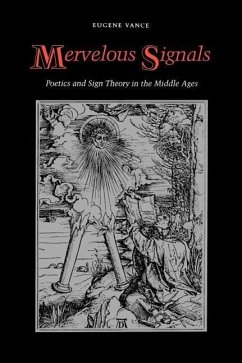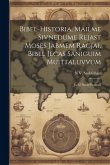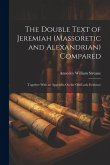The investigation of language, of how (and what and why) signifiers signify, is prominent in modern critical work, but the questions being asked are by no means new. In "Mervelous Signals," Eugene Vance asserts that "there is scarcely a term, practice, or concept in contemporary theory that does not have some rich antecedent in medieval thought." He goes on to illustrate the complexity and depth of medieval speculations about language and literature. Vance's study of the link between the poetics and semiotics of the Middle Ages takes both a critical and a historical view as he brings today's insights to bear on the contemporary perspectives of such works as "St. Augustine's Confessions," the "Chanson de Roland," "Chretien's Yvain, Aucassin and Nicolette," "Spenser's The Faerie Queen," and certain aspects of the works of Dante and Chaucer and of French medieval theater.
Hinweis: Dieser Artikel kann nur an eine deutsche Lieferadresse ausgeliefert werden.
Hinweis: Dieser Artikel kann nur an eine deutsche Lieferadresse ausgeliefert werden.








